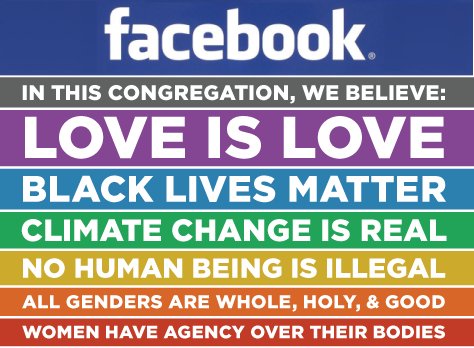Newcomer?
Newcomer’s Questions
Can I just “show up” for a service or Sunday school if I have never been to UUCSJS before?
Sure. We have visitors “checking us out” all the time. You will be greeted at the door, and asked to put on a “Hello My Name is…” nametag. We hope you’ll stay for the coffee hour following the service and help yourself to coffee/tea and goodies, so our members can say hello and get to know something about you.
Is there childcare/Sunday School during the service?
Usually, the service begins with the children sitting with their parents. Then we have the kids circulate through the congregation to collect our food bank offerings, followed by a children’s moment or story. After this, the children exit to their Religious Education classes. Shy ones sometimes remain behind with mom or dad (but after they hear what they’re missing, they’re usually out the door with the rest!). Childcare for younger children is always available.
If my child doesn’t separate well, can she or he stay with me in the service?
Your child is always welcome to stay with you during the worship service.
What should I, and my children, wear?
We are an informal group of people. Wear what feels comfortable to you. On any given Sunday, depending on the time of year or weather, you may see business casual, jeans, shorts, summery dresses, suits and ties (ah, admittedly those are few and far between), flip flops, moccasins, hiking boots… we even had someone show up in a wetsuit once. The children should be dressed comfortably, for play and arts & crafts.
Will I feel comfortable attending as a person of color? If I have a disability? If I come from a working-class background? If I’m a young person, or if I’m an elder?
Our congregation includes people from a range of cultural, racial/ethnic, class backgrounds, ages and abilities. Our building is accessible and we have large-print hymnals available.
Are there gay, lesbian, bisexual, queer, and/or transgender people in this congregation? Are they welcome?
We are a “Welcoming Congregation”, which in the UUA means we have gone through a set of workshops and educational exercises that focus on the LGBTQ community, how it feels to be gay, lesbian, bisexual, queer, and/or transgender in our society, and what it means to feel “welcomed”. After you get to know us, you’ll certainly become aware of who in our congregation identifies him or herself as such.
Are there people who come from diverse spiritual traditions and who pursue diverse spiritual journeys, or may identify as humanists, agnostics, or atheists?
Unitarian Universalists trust that individuals are capable of developing their own theology on the basis of their own life experience, diligent questioning, and participation in discussion and study with others in community. There is no set creed that one must adopt to become a Unitarian Universalist. Historically, Unitarian Universalism developed within the Christian tradition, but it has long since become more inclusive. We recognize timeless wisdom from all the world’s great religions, as well as that of thoughtful people of our own time. Our services are oriented to serve all of these diverse spiritual areas.
What goes on during the Sunday service?
Our services vary from week to week, depending on whether it is led by our minister, a lay leader, or a guest speaker. However, a generalized outline is as follows. There is a welcoming greeting by the minister or a lay leader, then music and lighting of the chalice, possibly followed by a reading. The children circulate through the congregation to collect offerings for the Community Food Bank, the Coalition Against Rape and Abuse, and local animal shelters. The children depart to go to their education classes, and the congregation may sing a hymn with the choir, or the choir may sing alone. One of the treasured parts of our service is the sharing of Joys and Sorrows, where members of the congregation may choose to drop a pebble into a vessel of water to offer a joy or sorrow from their life. There is an offering (“pass the plate”), and then the main topic or sermon. The service concludes with more singing and music, and in the case of a guest speaker, there may be time reserved for questions and answers. Finally, there is time for socializing, coffee, and committee meetings.





